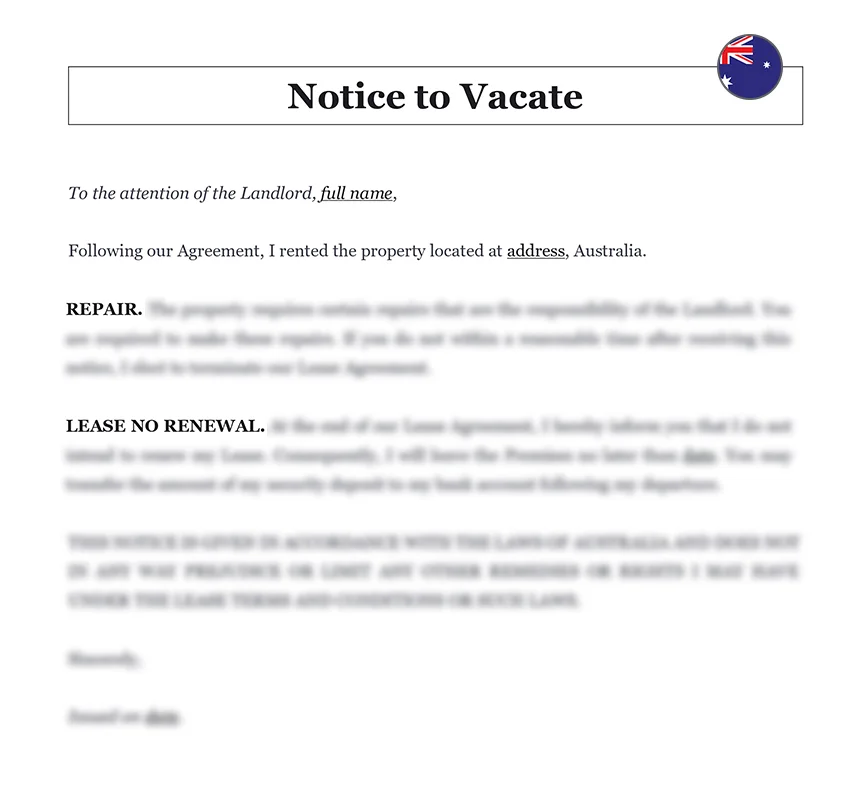The Importance of Issuing a Legal Move-Out Notice
Issuing a legal move-out notice is crucial for landlords and tenants in Australia to ensure a smooth and legally compliant end to a tenancy agreement. This process protects the rights of both parties and helps prevent disputes. Whether you’re a landlord needing to reclaim your property or a tenant planning to vacate, understanding how to issue a legal move-out notice is essential. This guide provides comprehensive steps and considerations for issuing a legal move-out notice in Australia.
Understanding the Legal Framework
Understanding the legal framework surrounding move-out notices is the first step.
1. Residential Tenancies Act: The Residential Tenancies Act in each state and territory governs the rules for issuing move-out notices. It’s crucial to familiarize yourself with the specific regulations in your jurisdiction.
2. Types of Tenancy Agreements: The rules may vary depending on whether the tenancy is fixed-term or periodic. Ensure you know the type of agreement in place.
Grounds for Issuing a Move-Out Notice
Identifying the valid grounds for issuing a move-out notice is essential.
1. For Landlords: Common grounds include non-payment of rent, breach of lease terms, property sale, or personal use of the property.
2. For Tenants: Tenants may issue a move-out notice for reasons such as relocation, change in personal circumstances, or breach of lease by the landlord.
3. Mutual Agreement: Both parties can agree to end the tenancy early. This agreement should be documented in writing.
Notice Period Requirements
Understanding the notice period requirements is crucial for compliance.
| ➤ Varied Notice Periods: Notice periods vary depending on the reason for termination and the type of tenancy. For example, landlords typically must provide 60 to 120 days' notice for a periodic lease, while tenants may need to provide 14 to 28 days' notice. |
| ➤ State-Specific Regulations: Each state and territory has specific notice period requirements. Ensure you comply with the regulations applicable to your location. |











